Serving 672 students in grades 6-8, Mary Mcleod Bethune Middle School ranks in the bottom 50% of all schools in Georgia for overall test scores (math proficiency is bottom 50%, and reading proficiency is bottom 50%).
The percentage of students achieving proficiency in math is 10% (which is lower than the Georgia state average of 37%). The percentage of students achieving proficiency in reading/language arts is 18% (which is lower than the Georgia state average of 40%).
The student:teacher ratio of 14:1 is equal to the Georgia state level of 14:1.
Minority enrollment is 98% of the student body (majority Black), which is higher than the Georgia state average of 65% (majority Black).
Quick Stats (2025)
- Grades: 6-8
- Enrollment: 672 students
- Student:Teacher Ratio: 14:1
- Minority Enrollment: 98%
- Overall Testing Rank: Bottom 50% in GA
- Math Proficiency: 10% (Btm 50%)
- Reading Proficiency: 18% (Btm 50%)
- Science Proficiency: 16% (Btm 50%)
- Source: National Center for Education Statistics (NCES), GA Dept. of Education
Top Rankings
Mary Mcleod Bethune Middle School ranks among the top 20% of public schools in Georgia for:
Category
Attribute
Percent Eligible For Free Lunch
School Overview
Mary Mcleod Bethune Middle School's student population of 672 students has declined by 22% over five school years.
The teacher population of 47 teachers has declined by 17% over five school years.
Grades Offered
Grades 6-8
Total Students
672 students
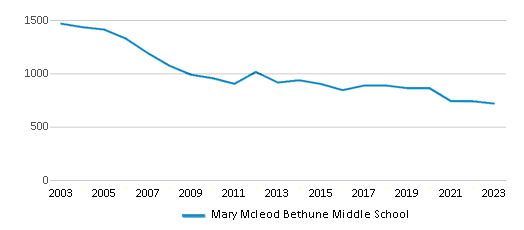
Gender %
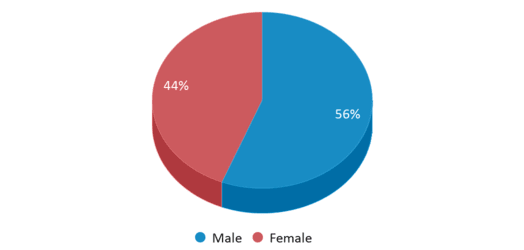
Total Classroom Teachers
47 teachers
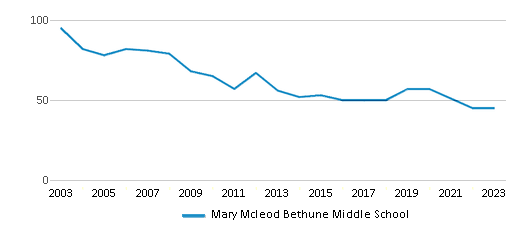
Students by Grade
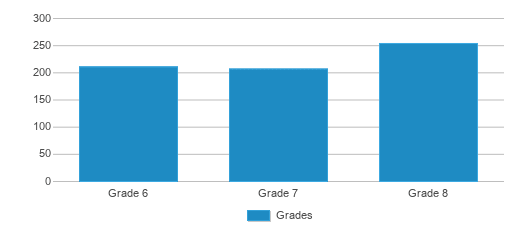
School Calendar
School Rankings
Mary Mcleod Bethune Middle School ranks within the bottom 50% of all 2,204 schools in Georgia (based off of combined math and reading proficiency testing data).
The diversity score of Mary Mcleod Bethune Middle School is 0.42, which is less than the diversity score at state average of 0.71. The school's diversity has stayed relatively flat over five school years.
Overall Testing Rank
#1964 out of 2204 schools
(Bottom 50%)
(Bottom 50%)
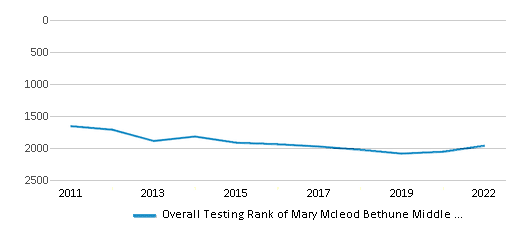
Math Test Scores (% Proficient)
10%
37%
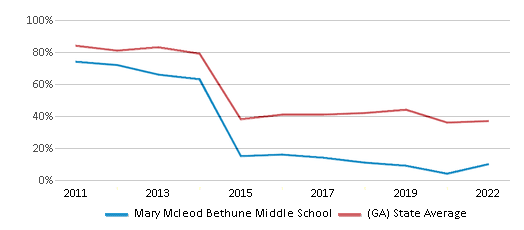
Reading/Language Arts Test Scores (% Proficient)
18%
40%
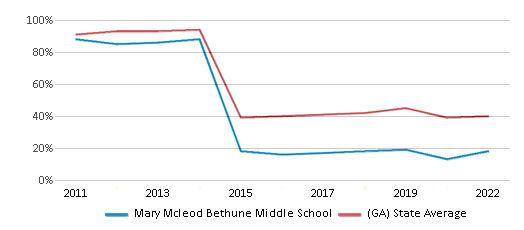
Science Test Scores (% Proficient)
16%
40%
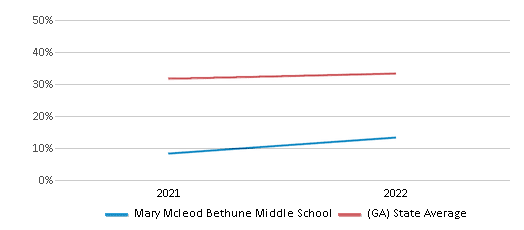
Student : Teacher Ratio
14:1
14:1
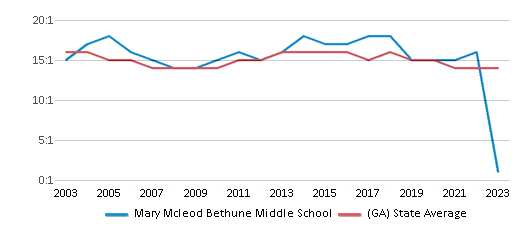
American Indian
1%
n/a
Asian
6%
5%
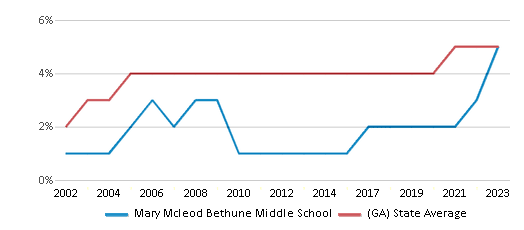
Hispanic
14%
19%
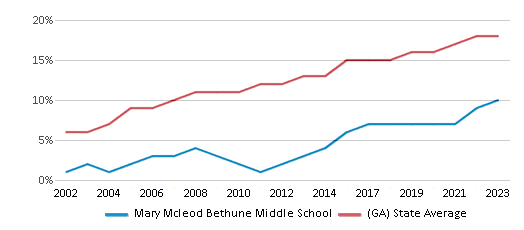
Black
75%
36%
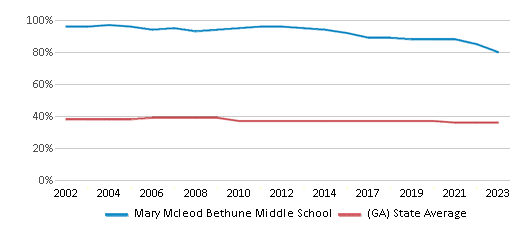
White
2%
35%
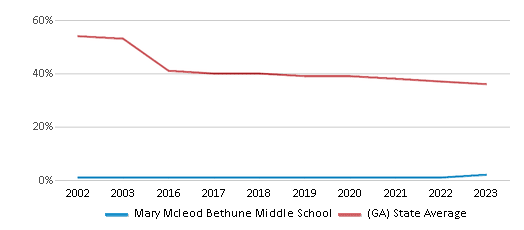
Hawaiian
n/a
n/a
Two or more races
2%
5%
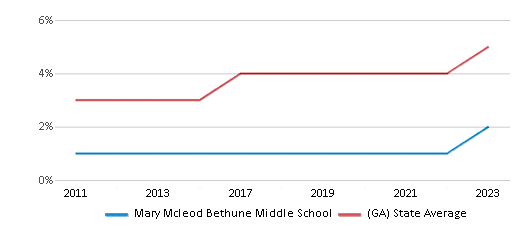
All Ethnic Groups
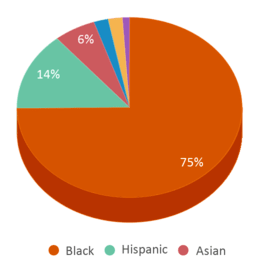
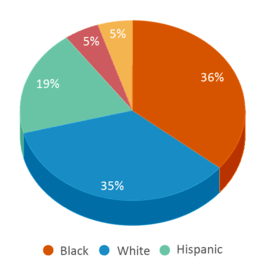
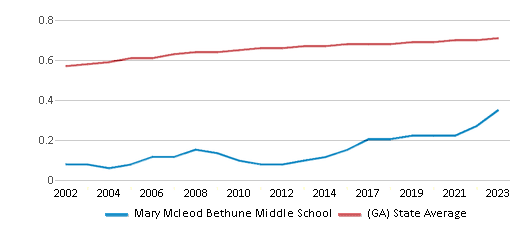
Participates in the National School Lunch Program (NSLP)
Yes
Eligible for Free Lunch
100%
59%
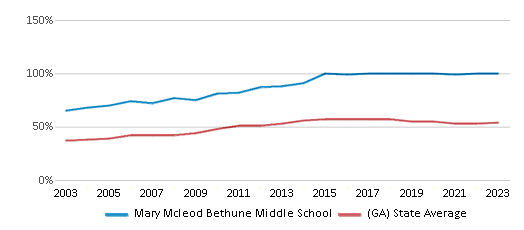
Eligible for Reduced Lunch (13-14)
3%
6%
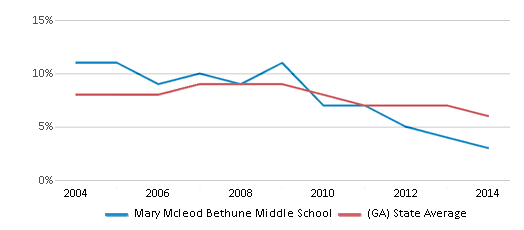
School Statewide Testing
School District Name
Source: National Center for Education Statistics (NCES), GA Dept. of Education
Profile last updated: 02/09/2025
Frequently Asked Questions
What is Mary Mcleod Bethune Middle School's ranking?
Mary Mcleod Bethune Middle School is ranked #1964 out of 2,204 schools, which ranks it among the bottom 50% of public schools in Georgia.
What schools are Mary Mcleod Bethune Middle School often compared to?
Mary Mcleod Bethune Middle Schoolis often viewed alongside schools like Miller Grove Middle School by visitors of our site.
What percent of students have achieved state testing proficiency in math and reading?
10% of students have achieved math proficiency (compared to the 37% GA state average), while 18% of students have achieved reading proficiency (compared to the 40% GA state average).
How many students attend Mary Mcleod Bethune Middle School?
672 students attend Mary Mcleod Bethune Middle School.
What is the racial composition of the student body?
75% of Mary Mcleod Bethune Middle School students are Black, 14% of students are Hispanic, 6% of students are Asian, 2% of students are White, 2% of students are Two or more races, and 1% of students are American Indian.
What is the student:teacher ratio of Mary Mcleod Bethune Middle School?
Mary Mcleod Bethune Middle School has a student ration of 14:1, which is equal to the Georgia state average of 14:1.
What grades does Mary Mcleod Bethune Middle School offer ?
Mary Mcleod Bethune Middle School offers enrollment in grades 6-8
What school district is Mary Mcleod Bethune Middle School part of?
Mary Mcleod Bethune Middle School is part of Dekalb County School District.
School Reviews
4 2/10/2020
The school is great.
5 6/10/2017
I am a parent, this school offers alot of parental involvement and encourages parents participation. We have to embrace and attend the programs. When I attended the programs and meetings, I was surprised to see the number of parents not in attendance. I am very pleased with this school, my child is graduating and passed all of her milestone exams. You are always going to have those students that's going to be a problem, As parents, we have to police our own children by ensuring they are not part of the problem but part of the solution.
2 2/2/2007
As a parent it doesn't seem the school does not want parent involvement. The school doesn't seem organized. It's even difficult to get someone to pick up the school phone line. When you call you normally have to call several times to get anyone. Teachers do not return calls when you leave messages on their individual voicemails. Too much disruption in the classroom among students who are causing problems. From talking with my child and their friends that attend most students do not like the school. They may like some of the teachers but overall don't like the school.
Review Mary Mcleod Bethune Middle School. Reviews should be a few sentences in length. Please include any comments on:
- Quality of academic programs, teachers, and facilities
- Availability of music, art, sports and other extracurricular activities
Recent Articles

What Is A Charter School?
Explore the world of charter schools in this comprehensive guide. Learn about their history, how they operate, and the pros and cons of this educational innovation. Discover key facts about charter schools, including admission policies, demographics, and funding, as well as what to look for when considering a charter school for your child.

10 Reasons Why High School Sports Benefit Students
Discover the 10 compelling reasons why high school sports are beneficial for students. This comprehensive article explores how athletics enhance academic performance, foster personal growth, and develop crucial life skills. From improved fitness and time management to leadership development and community representation, learn why participating in high school sports can be a game-changer for students' overall success and well-being.

February 05, 2025
Understanding the U.S. Department of Education: Structure, Impact, and EvolutionWe explore how the Department of Education shapes American education, from its cabinet-level leadership to its impact on millions of students, written for general audiences seeking clarity on this vital institution.





